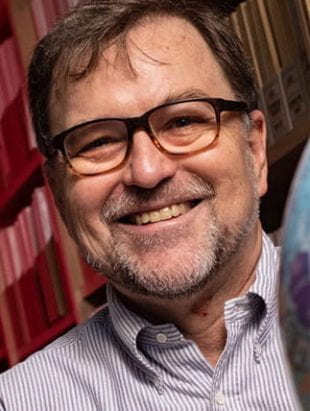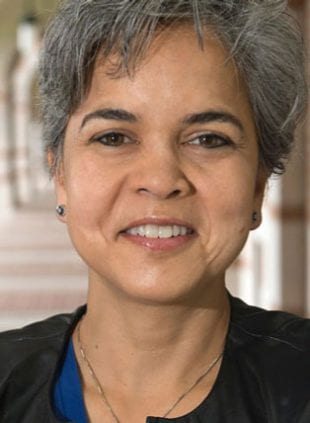Richard Gordon and Marie Lynn Miranda honored by scientific society
Rice University professors Richard Gordon and Marie Lynn Miranda have been named fellows of the American Association for the Advancement of Science (AAAS), the world’s largest general scientific society and publisher of the journal Science.
AAAS fellows are elected by their peers, and Gordon and Miranda are among 443 new fellows announced this week by the 120,000-member association. Fellows are selected for scientifically or socially distinguished efforts to advance science or its applications.
Gordon, the W.M. Keck Professor of Earth, Environmental and Planetary Sciences, was selected “for distinguished contributions to the fields of tectonic geophysics and geodesy through forefront research on diffuse oceanic plate boundaries and true polar wander.”
Gordon joined Rice in 1995 and studies the movement and deformation of tectonic plates, the patterns those movements leave in the paleogeographic record and the geophysical consequences of tectonic motions and deformation, including earthquakes, the building of mountain ranges and the evolution of ocean basins. He has discovered and investigated a number of diffuse boundaries that separate distinct tectonic plates in the oceans, and his investigations of “true” polar wander, instances when Earth shifted relative to its spin axis, have helped explain puzzling features of the paleomagnetic record. Gordon’s many honors include the American Geophysical Union’s Macelwane Medal in 1989 and the Geological Society of America’s Day Medal in 2002.
Miranda, a professor of statistics and director of the Children’s Environmental Health Initiative (CEHI), was selected “for distinguished contributions in integrating environmental health sciences with sound social policies, especially towards the protection of children’s health and well-being.”
Miranda joined Rice in 2015 and served as provost from 2015-19. She is a leader in the rapidly evolving field of geospatial health informatics and has applied spatial analytic approaches to a wide range of scientific issues. CEHI, which she founded in 1999, is a research, education and outreach program committed to fostering environments where all people can prosper. CEHI research has been cited extensively, including in the Environmental Protection Agency’s integrated science assessment on revisions to the national ambient air quality standard for lead, and the group received the EPA’s Environmental Justice Award in 2008.
The 2019 AAAS Fellows will be acknowledged in the Nov. 29 issue of Science and honored at a Feb. 15 ceremony at the 2020 AAAS annual meeting in Seattle.



